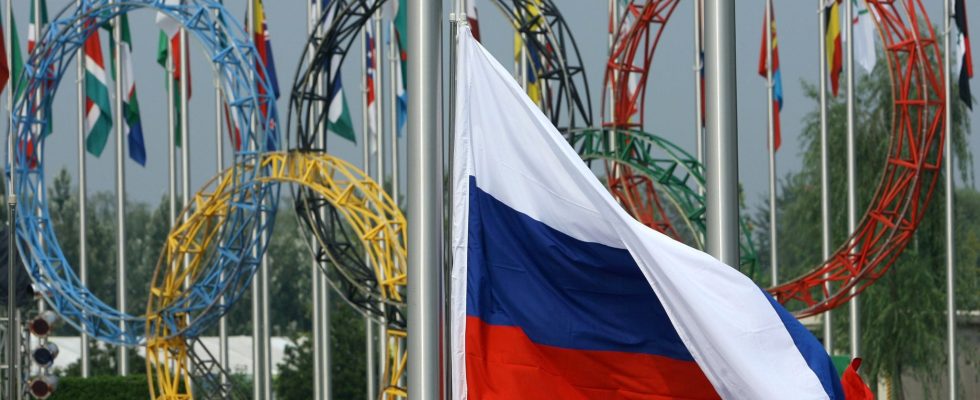While Russian athletes will not have the right to participate in the Paris 2024 Olympic Games under the flag of their country, but under a neutral banner, Russia announced a few months ago the creation of “Friendship Games” . A way of “politicizing sport”, accuses the International Olympic Committee (IOC) on Tuesday March 19, hardening its tone towards Russia. The spokesperson for the Russian Foreign Ministry reacted strongly to these criticisms on Wednesday, accusing the IOC of “neo-Nazism” and “racism”.
What are these Games really about? The new competing competition will initially take place next September, from September 15 to 29. This will follow, as for the Olympic Games, a winter edition which will take place in 2026 in Sochi, which hosted the 2014 Olympic Games. These multi-sport games are not in reality not new. They resurface forty years after their first edition, organized in 1984 by the Soviet Union and eight other countries, i.e. the states which had boycotted the Summer Olympics of that year in Los Angeles.
According to the Russian news agency TASS, the 2024 edition will be held in Moscow as well as in Yekaterinburg, the fourth largest city in the country located in the Urals. “A total of 5,500 people are expected to take part in the Games, which will offer cash prizes comprising a total of 4.6 billion rubles. The opening and closing ceremonies will take place in Moscow and part of the program will take place in Yekaterinburg “, specifies the state media.
The official website details the list of 35 sports which will be practiced during the competition: swimming, athletics, archery, taekwondo, athletics… But also more original events, acrobatic rock’n’roll, padel, MMA and even chess . Equipped with an organizing committee, but also a mascot in the shape of a tiger, the Friendship Games will be chaired by Alexeï Sorokine, a former diplomat already in charge of organizing the Football World Cup in the country in 2018.
A “diplomatic offensive” in the form of sports games
The IOC does not blame the Russians for creating multi-sport competitions outside its aegis (there are already several around the world) but for doing so via “a very sustained diplomatic offensive”, through direct contacts with “the governments of the world entire”. “In order to make their purely political motivation even more obvious, the latter deliberately bypass the sports organizations of their target countries”, underlines the body, which sees a “cynical attempt” to exploit the athletes “for the purposes of political propaganda “, in violation of the Olympic Charter.
Sport, a powerful tool of soft power, is indeed used openly by Russia, which makes it the showcase of a modern country capable of hosting events of international scope. “The main mission now, in my opinion, is not only to diligently respond to changes in the world sports order […] but, above all, to determine the role and place of Russia in building the future of sport”, recently indicated the Russian Minister of Sports, Oleg Matitsin.
The IOC also accuses Moscow of “a total lack of respect for global anti-doping standards and the integrity of competitions”, since the Friendship Games are devoid of an anti-doping program which the World Anti-Doping Agency could have demonstrate seriousness. However, Russia remains at the heart of the biggest institutionalized cheating in recent sporting history, which culminated during the 2014 Sochi Olympics and resulted in the country seeing its anthem and official colors banned from the Tokyo Olympics in 2021 then the Beijing Winter Games in 2022.
This new initiative is in addition to the Future Games organized in Kazan from February 21 to March 3, mixing traditional disciplines and e-sport, and the “BRICS Games” – an acronym for emerging powers around Brazil, Russia, India, China and South Africa, in particular – scheduled in the same city from June 12 to 23, and which are to welcome “athletes from more than 50 countries”, according to the Russian authorities.
